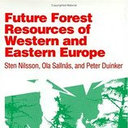Polymer-conjugated guanidine is a potentially useful anti-tumor agent.
الكلمات الدالة
نبذة مختصرة
Guanidine compounds have important biochemical properties. Aminoguanidine, as an example, is an anti-oxidant, a nitric oxide synthase inhibitor (NOS) which prevents nitric oxide formation, and an inhibitor of advanced glycosylation end products (AGEs). As an anti-oxidant, aminoguanidine may affect the formation of atherosclerotic lesions through protection from LDL oxidation. Inhibition of AGEs could have a preventive effect on the tissue damage caused by diabetes where AGEs are considered to be an important factor. The role of NO in cancer is complex and not fully understood, but it may have influence on growth and progression. In this study, the tumor growth inhibitory effect of conjugated guanidine (i.e. a polyguanidine) was investigated. The effect on tumor cell growth was studied in cultures of prostate, breast, bladder and renal cell cancer, and a fluorometric cytotoxicity assay was performed. Guanidine conjugates were prepared by reacting aminoguanidine or agmatine with periodate oxidized dextran followed by reductive amination. The cytotoxic effect was compared with an anthracycline (adriamycin). The dextran-guanidine conjugates were cytotoxic at low micromolar concentrations, and the dextran-aminoguanidine conjugate (GDC) had the highest efficacy, being more efficient than adriamycin, in all of the tested tumor cell lines. Breast and prostate cancer cells were the most sensitive. At 0.5 microM, GDC killed >95% of the breast cancer cells compared to 25% for Adriamycine. In prostate cancer cells, GDC killed approximately 55% of the cells at 0.1 microM and 100% of the cells at 0.5 microM compared to approximately 22 and approximately 62%, respectively, for adriamycin. Unconjugated aminoguanidine and agmatine did not seem to affect tumor cell growth even at high concentrations (mM). Polymer- conjugated guanidine is a potentially useful template for the construction of therapeutic tumor targeting cytotoxic agents.



